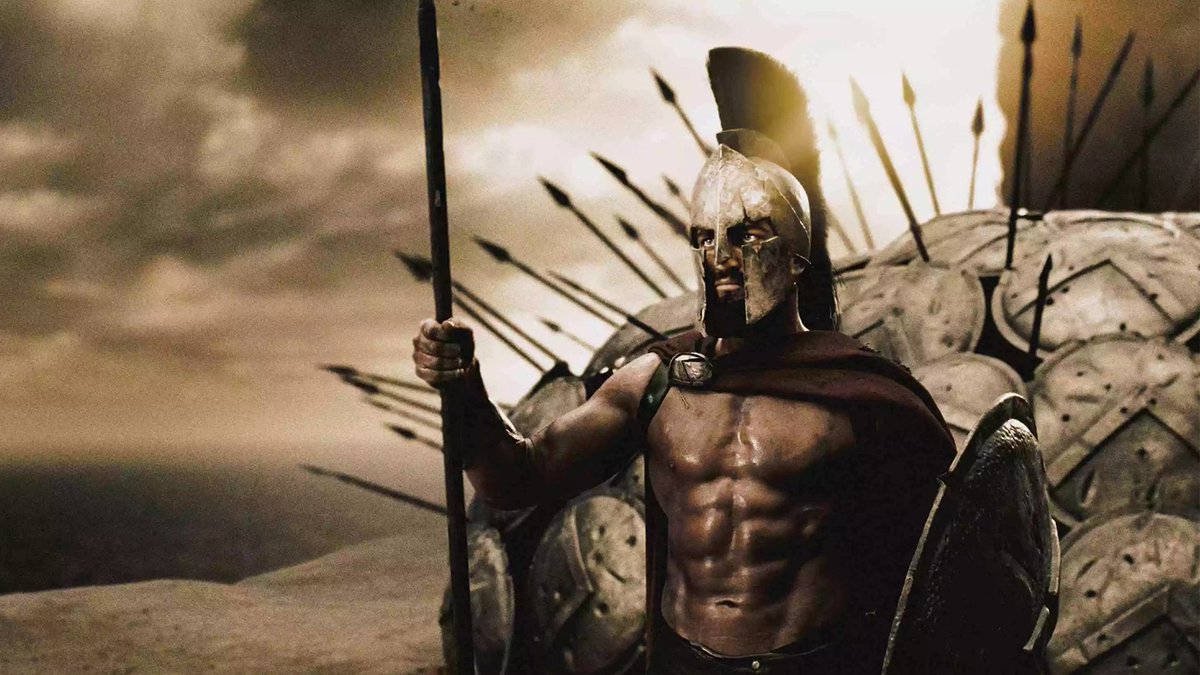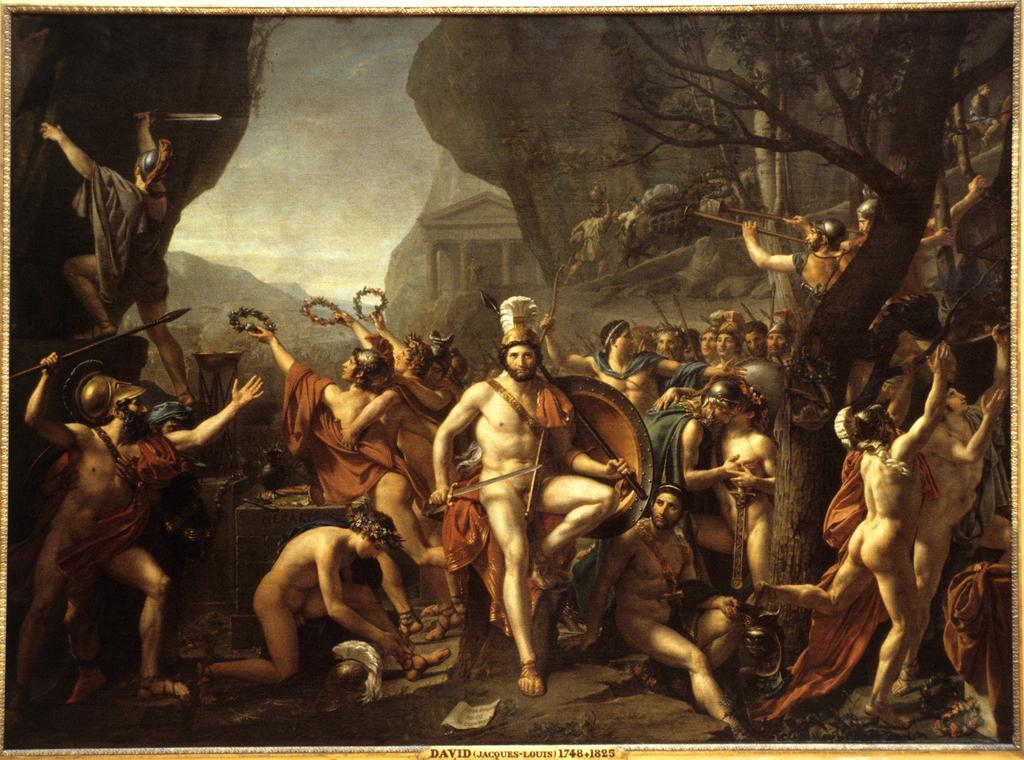Yesterday my thread about ancient warriors' bodies was RT'ed w/ fairly reasonable criticism. Since then I have been inundated with abuse from literal fascists for daring to challenge their ideas about ancient Greece.
For any adults in the room here are the receipts🧵
For any adults in the room here are the receipts🧵

Ancient Greek men obv. admired strength, venerated athletes & praised those who trained their bodies. But since the Archaic period there was tension between the needs of games and war. Athletes overspecialised & lost touch with practicality; they neglected what really mattered.
As the Spartan poet Tyrtaios says (fr. 12):
"I would not mention or take account of a man for his prowess in running or wrestling, not even if he had the size and strength of the Cyclopes (...) For no man is good in war unless he can endure the sight of blody slaughter..."
"I would not mention or take account of a man for his prowess in running or wrestling, not even if he had the size and strength of the Cyclopes (...) For no man is good in war unless he can endure the sight of blody slaughter..."
"...this is excellence; this is the finest prize for a young man to win."
Similarly Archilochos (fr. 114) does not like the well-groomed and sculpted rich man as commander, but "one who is short and bandy-legged, stands firmly on his feet, and is full of courage."
Similarly Archilochos (fr. 114) does not like the well-groomed and sculpted rich man as commander, but "one who is short and bandy-legged, stands firmly on his feet, and is full of courage."
This is a constant. Euripides' lost Autolykos:
"Of all the countless evils infesting Greece, there is none worse than the tribe of athletes (...) how, indeed, when a man is slave to his jaw, and a victim of his belly, could he acquire wealth to increase his father's store?"
"Of all the countless evils infesting Greece, there is none worse than the tribe of athletes (...) how, indeed, when a man is slave to his jaw, and a victim of his belly, could he acquire wealth to increase his father's store?"
"...Again, they cannot endure poverty, nor adapt themselves to misfortunes. Accustomed as they are to ignoble habits, they find it hard to change them when difficulties come (...) What succour to his native town does a man bring who has won a crown for clever wrestling?"
"Will they fight the enemy with discus in hand, or through the line of shields smite with the fist and cast the enemy forth from their native land? No man, when standing close to cold steel, commits such foolishness."
Epameinondas (Nepos 15.2.4-5):
"As soon as E. attained military age and began to interest himself in physical exercise, he aimed less at great strength than at agility; for he thought that the former was necessary for athletes, but that the latter would be helpful in warfare."
"As soon as E. attained military age and began to interest himself in physical exercise, he aimed less at great strength than at agility; for he thought that the former was necessary for athletes, but that the latter would be helpful in warfare."
Philopoimen (Plut. Philop. 3.2-3) is another famous general credited with this insight:
"He was also thought to be a good wrestler, but when some of his friends urged him to take up athletics, he asked them if athletics would not be injurious to his military training..."
"He was also thought to be a good wrestler, but when some of his friends urged him to take up athletics, he asked them if athletics would not be injurious to his military training..."
"They told him (arid it was the truth) that the habit of body and mode of life for athlete and soldier were totally different, and particularly that their diet and training were not the same, since the one required much sleep, continuous surfeit of food..."
"...and fixed periods of activity and repose, in order to preserve or improve their condition, which the slightest influence or the least departure from routine is apt to change for the worse; whereas the soldier ought to be used to all sorts of irregularity and inequality..."
"...and above all should accustom himself to endure lack of food easily, and as easily lack of sleep. On hearing this, Philopoimen not only shunned athletics himself and derided them, but also in later times as a commander banished from the army all forms of them..."
"...with every possible mark of reproach and dishonour, on the ground that they rendered useless for the inevitable struggle of battle men who would otherwise be most serviceable."
Xenophon (Sym. 2.17) has Sokrates declare that it is better to do mild general exercise (ie. dancing), "not like the long-distance runners, who develop their legs at the expense of their shoulders, nor like the prize-fighters, who develop their shoulders but become thin-legged"
The soldiers in the army of Alexander the Great mocked the boxer Dioxippos, calling him a "useless, bloated animal" (Curtius 9.7.16). He could win a 1v1 fight easily, but soldiers did not respect him, and shame finally drove him to suicide.
There is plenty more in Aristotle, Plutarch, and the medical authors to this effect, that athletic training is not good for your health and not suitable for soldiers. It is important to be fit, tough & enduring, but not to take it too far. As the poet Xenophanes says (fr. 2):
"Neither if there were a good boxer among the people, nor one good at the pentathlon or in wrestling, or again in the swiftness of his feet (...) would there for that reason be better law and order in the city."
A lot of people who presume that my view has anything to do with my identity or career should probably know that all of this same evidence is gathered in W.K. Pritchett, "The Greek State at War" II (1974), pp. 215-7. He was a classicist and captain in the USAAF from 1941-1945.
• • •
Missing some Tweet in this thread? You can try to
force a refresh

 Read on Twitter
Read on Twitter







